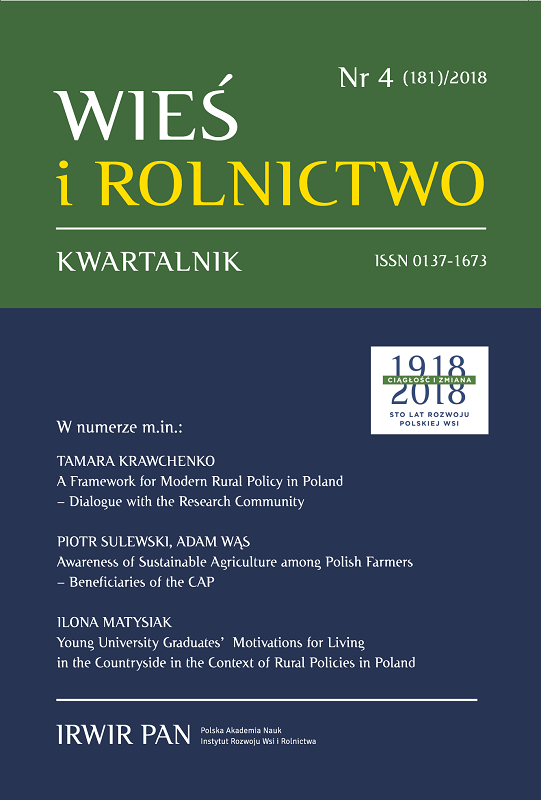Are Farmers Trapped in Hold-Up Relationships with their Contractors in the Supply Chain? The Case of Dairy Farmers and Feed Suppliers
Are Farmers Trapped in Hold-Up Relationships with their Contractors in the Supply Chain? The Case of Dairy Farmers and Feed Suppliers
Author(s): Agata Malak-RawlikowskaSubject(s): Politics, Agriculture, Sociology, EU-Legislation
Published by: Instytut Rozwoju Wsi i Rolnictwa Polskiej Akademii Nauk
Keywords: bargaining power imbalance; hold-up problem; vertical integration; dairy farmers; feed suppliers; Transaction Costs Theory
Summary/Abstract: Agricultural production is widely discussed in the context of imbalances inbargaining power in the food chain and farmers’ difficult position relative to their contractors.The paper attempts to explain the nature and reasons of the bargaining power imbalancesthat may lead to hold-up relationships in the farming sector in the light of the TransactionCosts Theory (TCT). In order to provide a certain focus, the theoretical discussion isillustrated by an empirical example of backward vertical relations between farmers and input(feed) suppliers. The article investigates the reasons for long-term and stable relationshipsbetween farmers and feed suppliers and whether these may be partly explained by animbalance in bargaining power, trapping farmers in the specific monopolistic (hold-up)relations with their contractors.Overall, the picture that emerges from the analysis does not support the assumptionsthat farmers are experiencing a large imbalance in bargaining power with regard to theirinput contractors, and are trapped in a specific monopolistic (hold-up) relationship withthem. Despite that there is no written contract between the farmers and their suppliers,relations are based on unwritten, privately enforced terms. The parties tend to respectthe mutually agreed relationship rather than breaching it ex-post in order extract the holdupquasi-rents. In this case a binding written supply commitment may increase transactioncosts, limit the freedom to change supplier and reduce the farmer’s bargaining power overthe feed producer by adding additional inter-dependency.
Journal: Wieś i Rolnictwo
- Issue Year: 181/2018
- Issue No: 4
- Page Range: 67-89
- Page Count: 23
- Language: English

